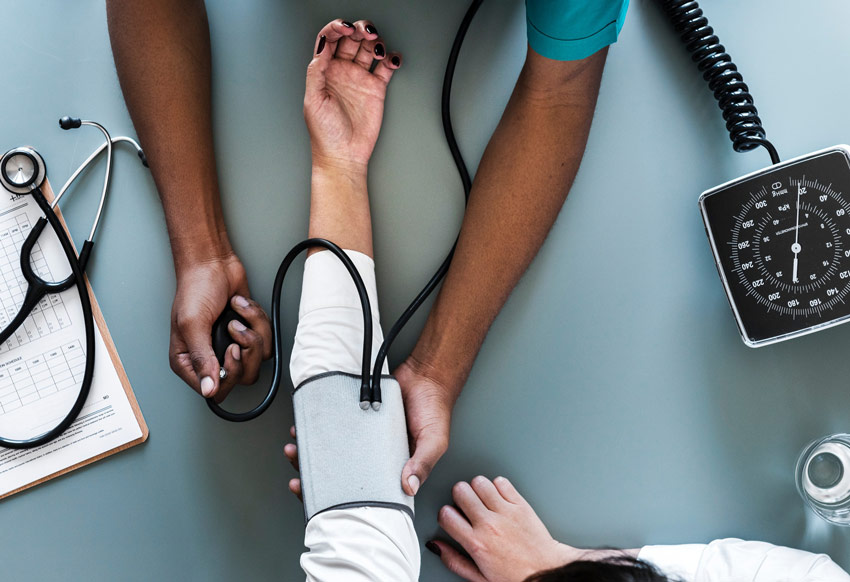One aspect of substance use that is often missed by many is the effect it has on a person’s nutrition. Many times, this is overlooked as a cause in the rush to treat the subsequent body system disorders it has caused. Especially among the elderly, the resulting health issues from continued alcohol abuse become obvious in the form of lacking system functions and advanced degenerative diseases.
An Overview
Nutrition is the middleman of sorts in the grand scheme of substance use disorder. The substances affect nutrition, which then affects aspects of the body. When the symptoms of these system disruptions show up, it is usually quite deep into substance use. While substances do affect some bodily systems directly, it is more often the case that these systems have been deprived of vital nutrients and that is the actual cause of the resulting symptoms.
All substances have the ability to negatively affect nutrition in a human body, but none are so traceable as alcohol. Since it is ingested in the same way that nutrients are, its effects on the body’s nutrition, digestion, and other systems are easily correlated.
Metabolism Is the Key
Metabolism is the breaking down of food and drink to nutrient level for use by the body. Everything that is consumed—by any means—gets metabolized. Whether it is taken orally, intravenously, or absorbed through the skin, it gets broken down so the body can decide what it can be used for.
Substances like alcohol that have calories, but no actual nutritional value are what is referred to as “empty” calories. They simply take up space and demand immediate metabolism without benefiting the body in any nutritional way. Unlike carbohydrates, proteins, and fats, there is no place in the body for storing alcohol.
Up to 20% of the alcohol you consume is absorbed through the stomach and immediately enters the bloodstream, where it reaches your brain within minutes. This is a unique quality of alcohol, as no other beverage (or food, for that matter) has this ability. Much of the remaining alcohol is absorbed by the small intestine with other food nutrients.
The Liver
The liver oversees metabolizing alcohol in the bloodstream. A healthy liver can oxidize (the process used to detoxify) pure ethanol at a rate of approximately 1/4 to 1/3 of an ounce every hour. This translates to less than 1 ounce of hard liquor. If you have liver problems due to over-indulgence, this rate of metabolism is even less.
When you drink far above your body’s ability to metabolize the alcohol, your blood alcohol concentration (BAC) will rise to potentially dangerous levels. There is no way to increase the rate of oxidation by the liver, so only time will lower your BAC. No amount of “sobering up” with coffee, cold water, or any other means will miraculously remove the alcohol from your blood. These actions can give a false sense of sobriety, but your body systems—neurological, digestive, endocrine, etc.—will still be at the same BAC.
Nutritional Deficiencies
Because alcohol takes priority being metabolized by the body, it can prevent essential nutrients (carbohydrates, protein, fats, minerals, and/or vitamins) from being properly absorbed. This can lead to a variety of health problems, deficiencies, or even malnutrition. Signs of these deficiencies can be easily missed, misdiagnosed, or not be noticeable until the deficiency is severe. By this point, the body can already be suffering dangerous health consequences.
- Folate
- This B vitamin helps the body produce and maintain new cells.
- Alcohol inhibits folate’s dietary intake through interfering with its intake, absorption, and transportation to tissues in need, as well as its storage and release by the liver.
- Low levels can result in birth defects in pregnant women and increase the chance of cancer in both genders.
- Thiamine
- Vitamin B1, also known as thiamine, is found in high concentrations within the skeletal muscles as well as in organs such as the brain, heart, liver, and kidneys. Thiamine’s presence in bodily tissues is required to build and give function to several enzymes. The enzymes it enables are used to break down sugar molecules, produce certain chemicals in the brain, and maintain the body’s defense system against free radicals.
- There is a rapid reduction in thiamine levels when people chronically abuse alcohol. This is thought to be caused by an unbalanced diet as well as the impact alcohol has on how thiamine is absorbed, stored, activated, and excreted.
- Depleted levels of thiamine can have early symptoms including fatigue, weakness, and emotional disturbance. If left untreated, this deficiency can become a serious disease that affects the cardiovascular system (wet beriberi) or the nervous system (dry beriberi) which lead to cardiac failure, neuropathy, or peripheral edema (fluid retention in the limbs and extremities).
- Vitamin B12
- This important vitamin helps the body make DNA, maintains healthy red blood cells and nerve cells, and is needed for metabolizing protein.
- Alcohol consumption can adversely affect levels of B12. A study showed when alcohol consumed per day increased just moderately the concentrations of B12 could be decreased by 5%.
- Low levels can cause a variety of symptoms including tingling or numbness in the arms or legs, fatigue, weakness, loss of balance, depression, confusion, poor memory, soreness of the tongue or mouth, and weight loss.
- Calcium
- Calcium is the most abundant mineral in the body and plays a role in building bone tissue, aiding expansion and contraction of blood vessels and muscles, and helping to transmit messages through the nervous system.
- Consuming alcohol increases the amount of calcium excreted through urination.
- Heavy alcohol use, especially by adolescents and young adults, can affect bone health dramatically and increase the likelihood of osteoporosis in later years.
- Vitamin A
- One of four vitamins that are fat-soluble, vitamin A is necessary for regulating the immune system, vision (specifically night vision), reproduction, bone growth, and cell division.
- Alcohol is especially dangerous with the metabolism of this particular vitamin. As vitamin A can be toxic in high doses, supplementing to counteract alcohol can have disastrous effects. Alcohol also enhances the toxicity of vitamin A, so if you supplement and overindulge in alcohol, the result can be catastrophic.
- Protein
- Amino acids that makeup protein are vital to cells in the human body. They help to maintain cell structure, act as enzymes, and transport substances in and out.
- Amino acid absorption in the small intestines is where alcohol interference is most noticeable.
The metabolism of proteins is altered greatly by chronic alcohol exposure and abuse that has resulted in liver failure. With the pancreas also being affected in the early stages of alcoholism, many of the symptoms aren’t noticed until well after the damage has begun.
The Results
When alcohol is ingested, the body prioritizes its metabolism. When binge drinking occurs, the body is forced to devote all available resources to detoxifying itself. If the body becomes overrun by alcohol, it will get creative in its ways of reducing the amount it has to process through the liver (i.e. vomiting). This natural detox process is similar to any other medical detox in that the body suffers unpleasant physical symptoms (read: hangover) until the bodily and neurological functions are back on an even keel.
There are a multitude of diseases, syndromes, and deficiencies that are either a direct result of abusing alcohol or a subsequent problem due to nutritional deficiencies. These nutritional deficiencies are caused by alcohol replacing vital nutrients in the body’s metabolism. This is entirely preventable, however. While some cases cannot be reversed, the damage can be slowed and some healing can happen if alcohol consumption is halted.
Replacing alcohol with a balanced, nutrient-rich diet is imperative for rebuilding a healthy metabolism. Once the body’s metabolism is once again focused on nutrients instead of damage-control and detoxification, any deficiencies will likely even themselves out and healing can begin. Working with a dietitian as part of your recovery journey is one very proactive way to ensure your body is given what it has been lacking.
Getting Help
The recovery process at St. Gregory Recovery Center’s Iowa drug and alcohol addiction treatment program includes working toward a healthy diet for its clients and making sure the entire mind, spirit, and body are healed after substance abuse.




